Table of Contents
Occupational medicine is a field of medicine branching from clinical medicine. The field ensures the highest standards of health and safety in workplaces. It involves management of medicine, preventive medicine, therapy for illness and disability all related to the workplace. In this post, we will explore the benefits of occupational healthcare for the senior citizen.
Occupational Health for the Senior Citizen: The Elderly
As we grow older, our bodies experience an overall decline which ultimately affects our quality of life. As the bodies lose their cognitive abilities, living itself becomes a daunting task. According to a study conducted by USC’s Health Science department, positive differences can be created in the lives of the senior citizens through proper occupational therapy. It offers them a chance to again experience a significantly healthier life, which can provide a great deal of satisfaction, especially to someone who has already lived a great deal of their life independently and then lost that freedom. It offers them a renewed opportunity to continue an independent lifestyle for a maximum period of time.
Various Associated Approaches
Well Elderly Study is a study published in the prestigious Journal of the American Medical Association. The study involved the observation of over 360 seniors ranging from the ages of 60 to 89 and the effects of occupational therapy treatment. The study intended to examine if the treatment would improve the attitudes, health, mobility, etc. of the involved seniors. The seniors or the subjects were split into three different groups.
The first group didn’t receive any form of treatment. The group was intended to serve as a measure of the other groups. The second group was involved in non-medical activities such as community outings, social projects, games, etc. The third group received professional occupational therapy for nine months. The treatment consisted of individual, as well as group treatments, with the aim of altering their perceptions and approaches towards their daily lives and menial activities such as shopping, exercising, etc.
Results of the Study
Once the nine month long study concluded, the medical researchers assessed each and every subject’s social and mental functioning as well as their overall health and wellbeing. The resulting information indicated the best improvement from the third group who were subject to occupational therapy. They demonstrated an impressive 14 percent improvement in terms of improved vitality, significantly better mental and physical health, and a greater outlook on life, hence, improved satisfaction. The therapy enabled them to improve their social interactivity while reducing commonly associated limitations. All of the improvements measured were in terms of the other two groups.
Potential of Occupational Health & Medicine
Previously the field of occupational medicine was restricted solely for the treatment of severe disabilities and crippling illnesses. However, the Well Elderly Study indicates a tremendous amount potential the field possesses, especially in terms of maintenance of health and preventive medicine in general.
The lead researcher of the study, Professor Florence Clark claimed the research provides evidence of how incorporating occupational medicine into the health plans of individuals of all ages can significantly reduce the changes of disability and morbidity. Furthermore, occupational medicine and therapy can reduce the overall cost and burden of healthcare on the government by simply providing these necessary healthcares in workplaces.
Conclusion: Empowering Seniors Through Occupational Health
In the realm of healthcare, the power of occupational medicine stands as a beacon of hope, especially for our beloved senior citizens. As we journey through the golden years, the challenges of declining health and diminishing independence can seem overwhelming. Yet, the innovative approach of occupational therapy brings not just assistance, but genuine transformation to the lives of our elders.
The groundbreaking Well Elderly Study, detailed in this exploration, illuminates the vast potential within the field of occupational healthcare. It reveals that, beyond its traditional role in managing severe disabilities, occupational therapy possesses the remarkable ability to enhance the lives of seniors on multiple levels. By engaging in tailored therapeutic interventions, seniors experienced a 14 percent improvement in vitality, mental and physical health, and overall life satisfaction.
These findings underscore the immense value of integrating occupational medicine into broader healthcare frameworks. Professor Florence Clark’s research findings echo a profound truth: incorporating occupational therapy into health plans for individuals of all ages can substantially decrease the likelihood of disability and morbidity. Moreover, it offers an avenue to mitigate the burden on healthcare systems by delivering vital care directly in the workplaces, where it is most needed.
In essence, occupational health emerges not just as a field of medicine but as a lifeline, promoting well-being, independence, and dignity for our senior citizens. By embracing its potential, we pave the way for a future where aging is not merely endured but embraced with vitality and grace, ensuring that every individual, regardless of age, can live a life of fulfillment and purpose.
© The Doctors’ Office Urgent Care

